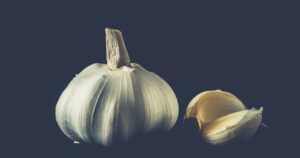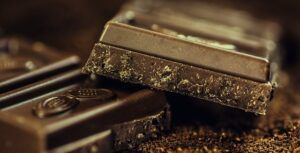Advertisement
10 Foods to Avoid When You Have Acid Reflux
If you have acid reflux then you’re likely already aware that some foods can lead to flare-ups. This is because they cause the esophageal sphincter to relax, which in turn delays the digestive process, giving you uncomfortable symptoms. The following list of foods are things you should try to avoid if you want some relief from your acid reflux. That being said, we know that it may be unrealistic to completely cut out all of these foods, in which case moderation is key. And of course, always speak to your doctor before starting any new diet!
Want to know which foods you should be eating if you suffer from acid reflux? Check out this list!

High-Fat Foods – Unfortunately many of the best-tasting foods are also the worst for your acid reflux. It’s best to stay away from fatty foods like full-fat dairy products, potato chips, red meat, or fried foods. Consuming these things decreases the effectiveness of the lower esophageal sphincter (LES), which works to keep stomach contents where they belong: in the stomach. Just trust us on this, it’s better for your acid reflux and better for your health in the long run!
Tomatoes and Citrus Fruits – Tomatoes and citrus fruits can be a healthy part of a balanced diet – except for those with acid reflux. Try to avoid fruits like pineapples, oranges, grapefruit, lemons, and limes. Tomatoes in particular can worsen symptoms because they’re full of malic and citric acid, which can make the stomach produce too much gastric acid, leading to the acid being pushed back up into the esophagus. So unfortunately you may want to save your favorite pasta with marinara sauce solely for special occasions!
Chocolate – Yes, we’re sorry to report that chocolate is another culprit when it comes to aggravating heartburn, and the reason for it is actually pretty interesting: when you consume chocolate, the cocoa in it leads to a small serotonin surge, which in turn causes your esophageal sphincter to relax and the contents of your stomach to be pushed up into your esophagus. Additionally, the caffeine and theobromine found in chocolate may also contribute to acid reflux. The more you know!

Onions – Onions are without a doubt one of the worst offenders with regard to acid reflux. Consuming raw white or yellow onions can stimulate the gastric acid in your stomach, leading to heartburn. If you can’t live without onions in your life (and we know that’s difficult because they’re in practically everything!), stick to the cooked variety! Green onions and shallots are also an option for replacements as they’re a bit more mild than their white and yellow cousins.
Coffee – Tragically, coffee can be one of the absolute worst things for sufferers of acid reflux because of its high acidity content. However, there is a significantly less-acidic hack: cold brew. To make cold brew all you have to do is measure out a quarter-cup of coffee grounds into a French press and fill the rest with cold water. Then, leave it out on the counter overnight and in the morning just push the plunger down and you have yourself some delicious cold brew! If that doesn’t work then it might be time to switch to tea as your new morning beverage. We know, it’s not quite the same as a hot cup of coffee, but we promise your esophagus will thank you!
Mint – It may seem counterintuitive to say that mint aggravates acid reflux – after all, wouldn’t the cooling sensation calm down your heartburn? Not so, as mint (like many of the other things on this list) actually relaxes the muscles in your esophageal sphincter, making it easier for acid to flow back up into your esophagus. That being said, there is some evidence to suggest that chewing gum may help relieve heartburn. Just make sure you pick a sugar-free, non-mint variety!
Alcohol – Unfortunately alcoholic beverages are some of the worst things for your heartburn – especially red wine. This is because alcohol is a diuretic, meaning that you’ll urinate more often. This could potentially cause dehydration, which is known to make acid reflux symptoms worse. So the next time you’re tempted to pour yourself a glass of Cabernet Sauvignon after a long day, consider your stress out in a healthier way, like with a punching bag.

Carbonated Beverages – It may be tempting to reach for a can of ginger ale when you’re dealing with heartburn or stomach issues, but pause for a moment because that may actually make you feel even worse. The research says that the gas that’s released by the carbonation increases gastric pressure as the bubbles push against your stomach. This forces your esophageal sphincter to open, giving you acid reflux symptoms. Additionally, many carbonated beverages contain caffeine, which can further exacerbate the issue.
Garlic – This is a tough one, because garlic (like onions) is in practically every dish ever. While garlic has many scientifically proven health benefits for those with normal functioning esophagi, doctors recommend that GERD sufferers stay away from it because it can lead to irritation and inflammation of the lining of the esophagus. So if you’re looking to stay away from garlic, unfortunately you may end up having to cook most of your own meals at home and avoid eating out!
Spicy Foods – Spicy food already causes some pain in the stomach and intestinal region for many people, so it makes sense that it would also be detrimental to one’s esophagus. A Korean study conducted in 2017 found that more than half of the research participants involved developed GERD symptoms after consuming a hot, spicy stew. However, there’s also been (limited) evidence to suggest that people who regularly consume spicy foods may experience fewer GERD symptoms. So if you simply can’t live without spicy food, it might be time to train up the ol’ taste buds!












